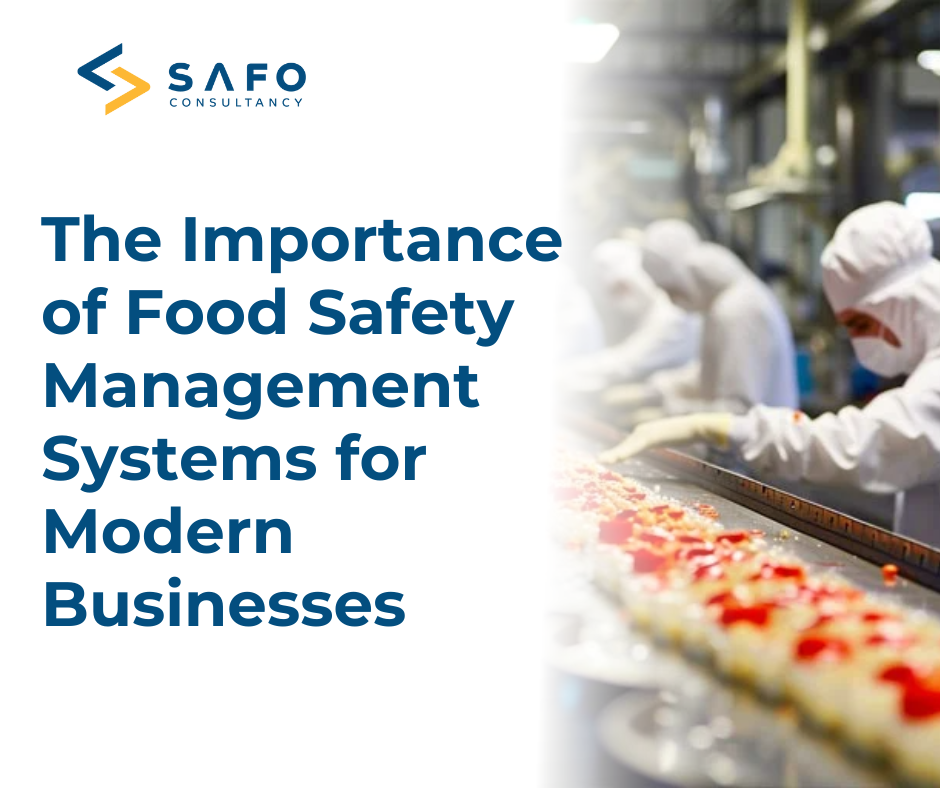
Food safety is no longer an optional consideration for businesses—it is a fundamental necessity. With increasing consumer awareness, stringent regulations, and the globalized nature of supply chains, modern businesses must prioritize food safety to remain competitive and trustworthy.
Why Food Safety Matters
Food safety ensures that the food we consume is free from contaminants, safe to eat, and meets quality standards. For businesses, this translates into protecting customers from foodborne illnesses and maintaining compliance with regulations such as ISO 22000, HACCP, and other local standards. Neglecting food safety can result in severe consequences, including financial losses, legal penalties, and irreversible damage to your brand’s reputation.
Benefits of Implementing a Food Safety Management System
- Regulatory Compliance A well-implemented FSMS ensures that your business complies with local and international food safety standards. This not only avoids legal complications but also demonstrates your commitment to public health.
- Consumer Trust Customers are more likely to trust and return to businesses that prioritize food safety. An FSMS signals that you care about their well-being, fostering loyalty and positive word-of-mouth.
- Operational Efficiency An FSMS streamlines processes, reduces waste, and minimizes the risk of recalls. This can lead to significant cost savings and improved resource utilization.
- Brand Reputation In an era of instant online reviews, a single food safety incident can tarnish your reputation. An FSMS helps you maintain high standards, reducing the likelihood of negative publicity.
Key Components of an Effective FSMS
To reap these benefits, your FSMS should include:
- Hazard Analysis and Risk Assessment: Identifying and mitigating potential risks in your operations.
- Documentation and Record-Keeping: Ensuring traceability and accountability.
- Regular Audits: Periodic reviews to ensure ongoing compliance and improvement.
- Employee Training: Educating staff on hygiene practices and food safety protocols.
How SAFO Consultancy Pvt Ltd Can Help
At SAFO Consultancy Pvt Ltd, we specialize in implementing Food Safety Management Systems tailored to your business needs. Our services include:
- Document creation
- Training and workshops
- Internal audits
- Final certification audit facilitation
With our expertise, we ensure that your business not only meets regulatory requirements but also exceeds customer expectations.
Conclusion
A robust Food Safety Management System is more than a compliance tool—it is a strategic asset for modern businesses. By prioritizing food safety, you protect your consumers, enhance your brand’s reputation, and set your business up for long-term success.
